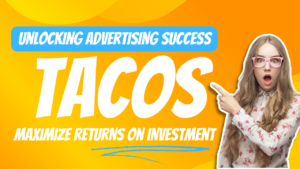
Did you know that active users on Facebook now makes up more than 20% of the global population? Yes, it’s that mind-numbing a figure!
The platform now has 1.60 million monthly active users (this data was taken at the start of 2016). You should also know that, Facebook alone generates around 10% of all online traffic!
The stats are an obvious indicator why social media in general, and Facebook in particular, has become the most favored destination for brands to get traffic.
In addition, social signals (shares, comments, mentions and like etc.) now ensure higher rankings in search results which is why businesses want to leverage this platform to the core.
This clearly show that you can get a lot of visitors and attention to your posts on Facebook if you knew how to share and spread your content in a better way.
So, the question is, how to get the desired level of traffic and engagement on Facebook?
Before answering that question, it becomes important to know, why only Facebook and why not some other social media?
The answer could be deduced from these two strands of data below:
- On an average, per day engagement by Americans on Facebook is some 4 times more than LinkedIn and over 2 times than Twitter
- Facebook generates 50 times more referral traffic than StumbleUpon, 25 times more than Twitter and some 5 times more than Pinterest
How to boost your Facebook engagement and reach?
It is a million-dollar question and it seems everyone is asking the same. Before finding the answer, it’d make more sense to understand what makes content and posts to perform better on Facebook and what ruins their prospects.
You should know a number of things, including:
- Like Google or any other search engine, Facebook too uses an algorithm to rank its content
- It also has a range of ranking factors which keep changing and evolving from time to time
- Your posts, videos, images, photos, status, links or any other content may get different ranking in different month as the algorithm keeps changing from time to time
- Only Facebook knows which factors will help get posts more exposure and which not (very much like search engines, isn’t it?)
So, now let’s look at those tips:
#1 Understand your audience first
Understanding the audience means posting the right type of content at the right time of the right day.
You can’t expect a plain link shared at a mid-week and that too, at noon, to win you engagement. Weekends are always a better time, so do infographics. Prefer posting at night.
#2 Aim for interactions with engaging posts
You should know that questions bring more engagement than links. Images and videos always work the best to stir the emotion of your target audience.
So, why not asks questions by mixing images and videos in that? That will help a lot.
#3 Make the most out of Sundays
Yes, posts on Sundays get some 30-33% more engagement than they do on Mondays and Tuesdays.
You guess it right, Saturdays are the nearest day of the week which is just a marginally less productive as Sunday, with some 5-10% variations.
#4 Ask questions, sell emotions and keep it short
Yes, ask questions that create flutters (mild one, of course) and invoke reactions. Try posting in a way to sell emotions, trust us, this works.
Above all, try to keep things short, particularly your well posts. Don’t let them exceed the mark of 80 characters.
#5 Don’t embed videos, post them directly
Never ever do the mistake of embedding videos in your posts as they bring down the level of engagement drastically.
Rather, posts videos directly on Facebook and see your engagement and interaction level go up.
Conclusion
So, follow these tips and read more about topic on the internet to enhance the reach and impact of your Facebook posts.
Dharam
Latest posts by Dharam (see all)
- What could be the reasons of High Advertising Cost of Sales (ACoS)? - January 13, 2025
- How to provide Walmart Connect user access to someone? - January 13, 2025
- Top Strategies to Lower TACOS and Improve Advertising ROI - April 1, 2024
- Walmart Advertising – Interview Questions - February 9, 2024
- Brand Term Targeting (BTT) Best Practices - February 6, 2024












